—Go Inside The Brains Of Three Smart Animals — Dogs, Birds And Dolphins—
We have all gazed into a creature’s eyes and wondered: What is it thinking about? What does it know?
Now, the revolutionary science of animal cognition is revealing hard evidence about how animals understand the world around them, uncovering their remarkable problem-solving abilities and exploring the complexity of their powers of communication and even their emotions.
In the three-hour, INSIDE ANIMAL MINDS, NOVA explores these breakthroughs through the eyes of three iconic creatures: dogs, birds and dolphins.
EPISODE GUIDE:
"Bird Genius" repeats Wednesday, June 24 at 8 p.m. - When it comes to intelligence, we humans are clearly the most gifted animals around. But what makes us so special? Is it our ability to make and use tools? To solve complex problems? Or plan for the future?
It might seem that way, but today, researchers are discovering other creatures with impressive brains that have mastered all those skills. Surprisingly, many are bird brains.
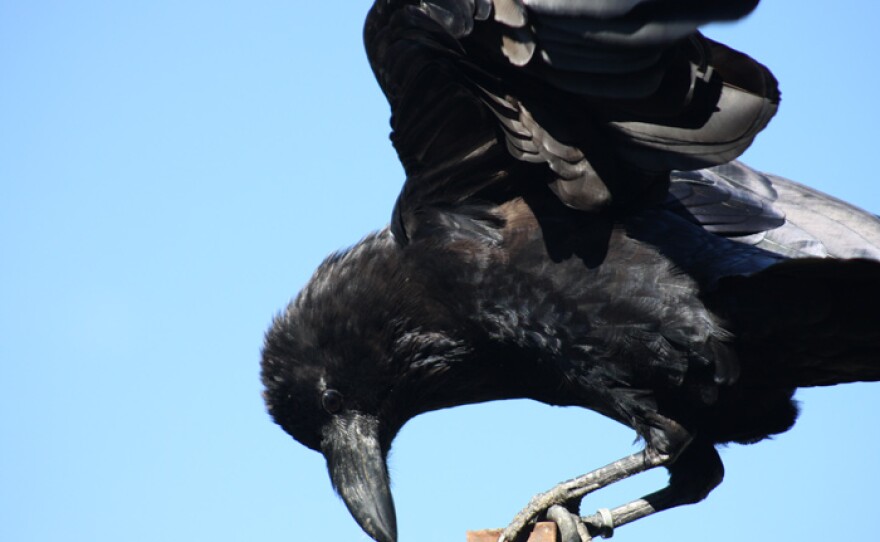
Crows bend and shape sticks to create custom-made spears for hunting grubs, and they are just one among a growing list of bird species whose impressive problem-solving abilities are shocking scientists and revolutionizing our understanding of animal intelligence.
INSIDE ANIMAL MINDS introduces animals at the head of the class—like "Muppet," a cockatoo with a talent for picking locks, and "007," a wild crow on a mission to solve an eight-step puzzle for the first time ever.
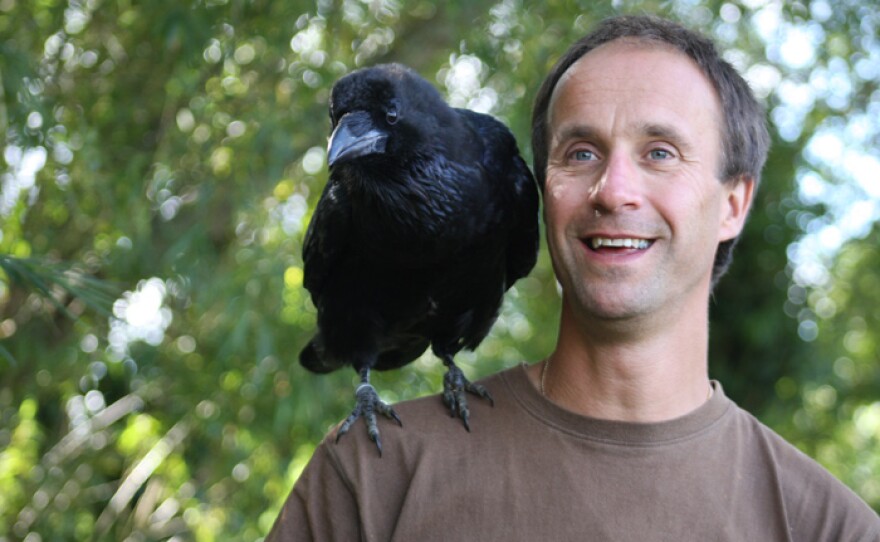
Viewers will also meet animal handler Lloyd Buck and his tame raven, Bran, who can solve a puzzle box so quickly that his performance has to be captured with high-speed photography.
But are these skills really evidence of high intelligence, or just parlor tricks, the result of training and instinct? To find out, NOVA tests the limits of some of the planet’s brainiest animals, searching for the secrets of a problem-solving mind.
"Dogs & Super Senses" (NO REPEAT CURRENTLY SCHEDULED) - What is it like to be a dog, a shark, or a bird? Long the subject of human daydreams, this question is now getting serious attention from scientists who study animal senses. The senses define our experience of the world—they shape our minds, and help make us what we are.
Humans rely on smell, sight, taste, touch, and sound, but other animals have super-powered versions of these senses.
A few animals, like electrically-sensitive sharks, even have extra senses we don’t have at all. From a dog who seems to use smell to tell time, to a dolphin who can “see” with his ears, viewers will discover how animals use their senses in ways we humans can barely imagine.
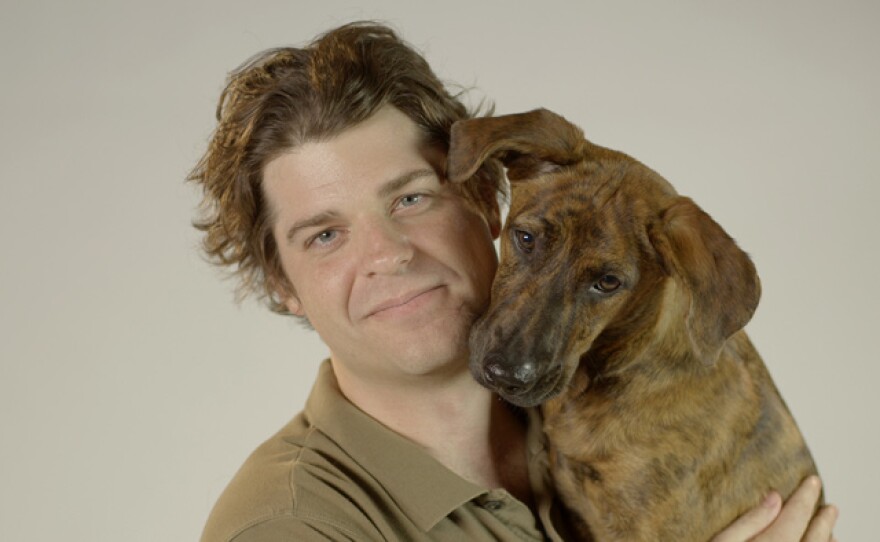
NOVA meets with researcher Kathryn Lord from the University of Massachusetts, Amherst/Gettysburg College, who has reared a group of wolves from birth to see how they interpret visual information and how it contrasts with dogs.
She discovers that the process of domestication on dogs may have given dogs greater flexibility to rely on all of their senses, while wolves are evolutionarily hardwired to use their sense of smell above all other senses.
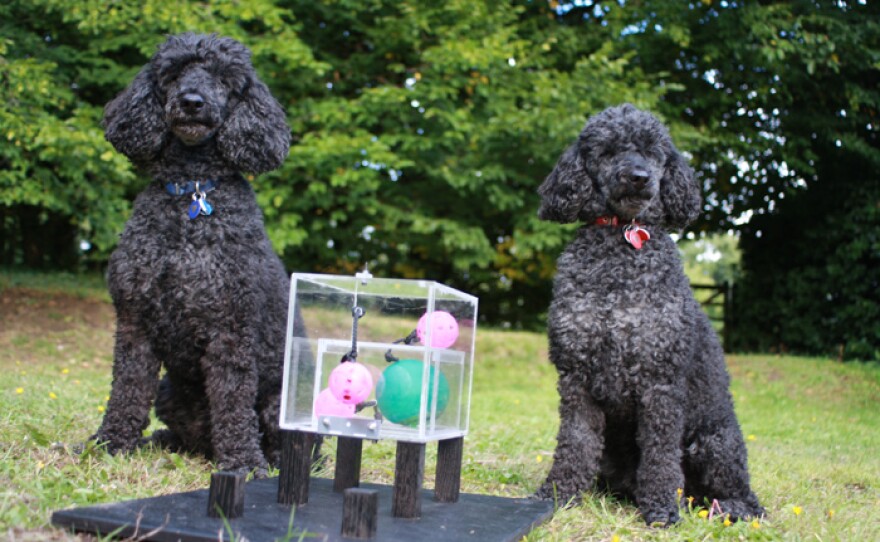
But it’s not just the senses that are remarkable — it’s the brains that process them.
How does a swallow’s tiny, one-gram brain take in the flood of visual information that enables the bird to whiz within inches of buildings while flying at 40 miles an hour? Is it possible for a dog to smell time? How has the evolution of the dog — from its wolf ancestors — reshaped its brain?
NOVA goes into the minds of animals to “see” the world in an entirely new way.
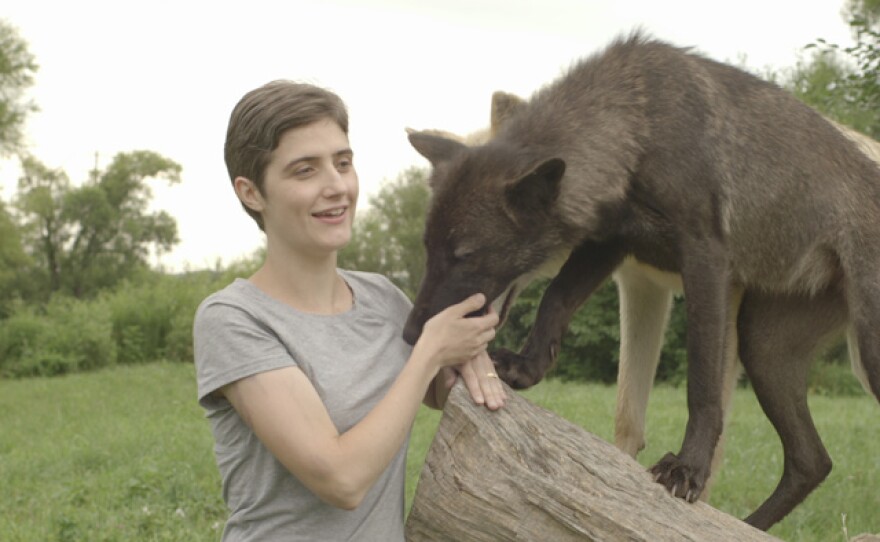
"Who's The Smartest?" airs Wednesday, Dec. 18 at 9 p.m. on KPBS TV + Friday, Dec. 20 at 11 a.m. on KPBS 2 - What makes an animal smart? What forces of evolution drive brains to become more complex? Many scientists believe the secret lies in our relationships.
Throughout the animal kingdom, some of the cleverest creatures — including humans — seem to be those who live in complex social groups, like dolphins, elephants, and apes.
Could the skills required to keep track of friend and foe make animals smarter?
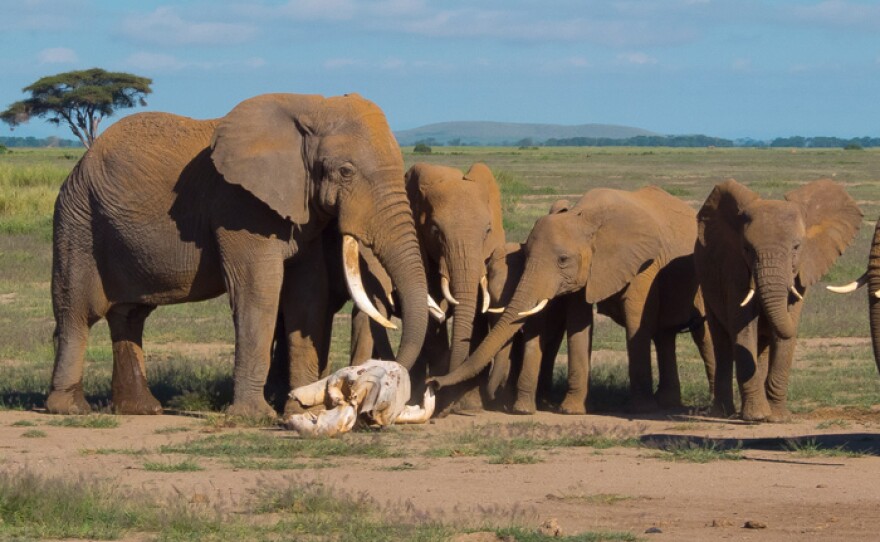
To find out, NOVA goes inside the social lives of some of the smartest animals on the planet. Off the coast of Florida, viewers will see dolphins team up to catch fish by whipping up a wall of muddy water that drives the meal right into their companions’ waiting mouths. It seems that the dolphins are working together to plan their hunt.
But are they really?

Biologists go on a quest to decipher the secrets of animal societies, from the seas of the Caribbean to the plains of Africa. Do dolphins and elephants have “language”? Do chimps have a sense of fairness? And are any animals besides ourselves capable of feeling empathy?

NOVA meets with Dr. Diana Reiss, animal psychologist at the National Aquarium in Baltimore, Maryland, who investigates whether dolphins have a sense of self and can recognize themselves as individuals.
Watch On Your Schedule:
Episodes from this series are not currently available to stream on demand.
Episodes are available for viewing on demand for a limited time after each broadcast. Extend your viewing window with KPBS Passport, video streaming for members at $60 or more yearly, using your computer, smartphone, tablet, Roku, AppleTV, Amazon Fire or Chromecast. Learn how to activate your benefit now.
Join The Conversation:
NOVA is on Facebook, and you can follow @novapbs on Twitter. #NOVAnextNOVA is on Facebook, follow @novapbs on Twitter.






